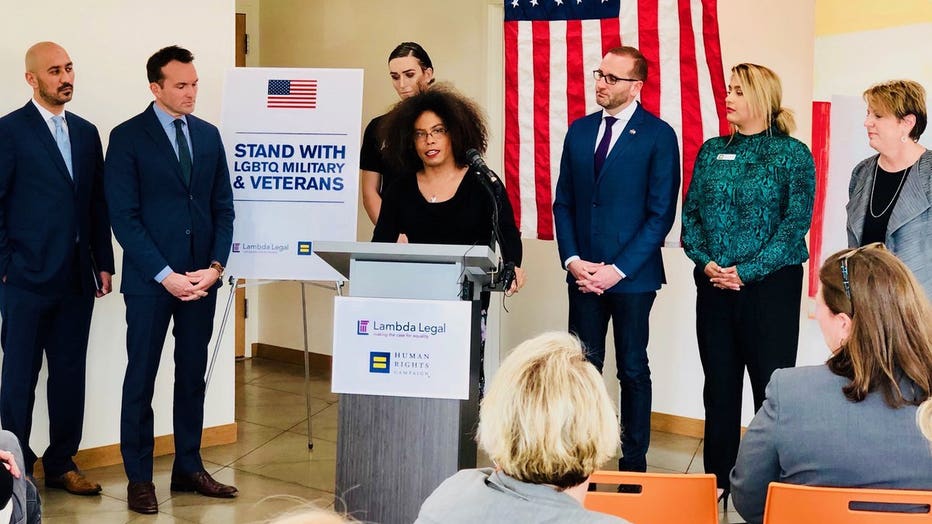Transgender US Marine weighs in on military ban ruling
SEATTLE – Rallies and protests are being planned across the country to fight back against Tuesday’s Supreme Court ruling.
In a split decision, the highest court ruled to not hear any cases challenging the Trump Administration’s partial transgender military ban. Instead, the Court ruled to lift the temporary injunction. That means the administration can move forward with plans to discharge or not allow transgender people in the military.
Being a Marine is a childhood dream realized for U.S. Marine Cpl. Nicole Perry, even though she was hiding her authentic self.
“I wanted to join the military. I had an uncle who served in the army,” said Perry.
It wasn’t until after she left the military after five years that Perry began living her true gender identity. She identifies as a transgender veteran, but she enlisted during the Don’t Ask Don’t Tell Policy.

“The equal opportunity officer at my last unit, although he said if anything ever happened let him know and he would take care of it, technically his hands were tied. Because there wouldn’t have been anything that he could have done,” said Perry.
And the fear of being discharged lives on today in transgender active duty vets, especially after President Trump released a flurry of tweets in July 2017. The tweets read, in part, “The United States government will not accept or allow transgender individuals to serve in any capacity in the US military.”
Tuesday morning, the Supreme Court lifted temporary injunctions made by lower courts to allow the president’s partial ban to begin again.
Most transgender persons are now disqualified from military service except:
“It was déjà vu for me because I remember two years ago,” said Perry. “The Supreme Court is letting the transgender ban go through. What? It was again a striking wake up.”
She’s spent the last two yearsvas a trans activist fighting for equal rights and protections for herself and active duty military who can’t speak out.
“Now there’s a chance they could get kicked out, they may be one year from retirement. Now they’re worried, 'Am I going to be able to retire? Will I be able to stay in and protect my family?'” asked Perry.
And we’re hearing from lawmakers concerned about the ruling. Congressman Adam Smith wrote, “Anyone who is qualified and willing should be allowed to serve their country openly, without their career being affected by an arbitrary, discriminatory directive from the President.”
Sen. Patty Murray echoing his sentiments, urging, “…Acting Secretary Shanahan and the Department of Defense not to move forward with this discriminatory ban that would create further uncertainty for our troops and degrade our national security.”
Because the Supreme Court did not rule on the merits of the case, lawsuits like the one filed by Washington State Attorney General Bob Ferguson continues. He tweeted, “The Supreme Court’s divided decision to let the ban go into effect while our lawsuit continues is deeply disappointing.”
But it’s still up to lower courts to decide if the ban is lawful. Nicole says it’s simple. She says transgender military members are not a hindrance on healthcare costs or military operations.
“We’re all there to complete the mission,” said Perry.
So what happens next? The Supreme Court did not rule on whether the ban is lawful. Answering that question still remains before the lower courts.
“Either they figure out a way to put a hold on it or they figure out a way to start transferring transgender people out of the military,” said Perry.

